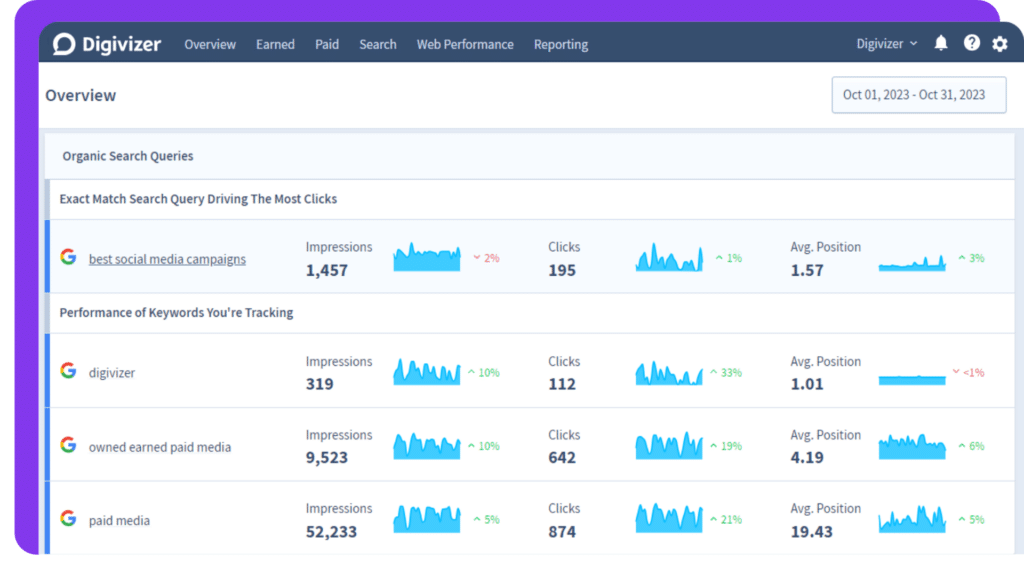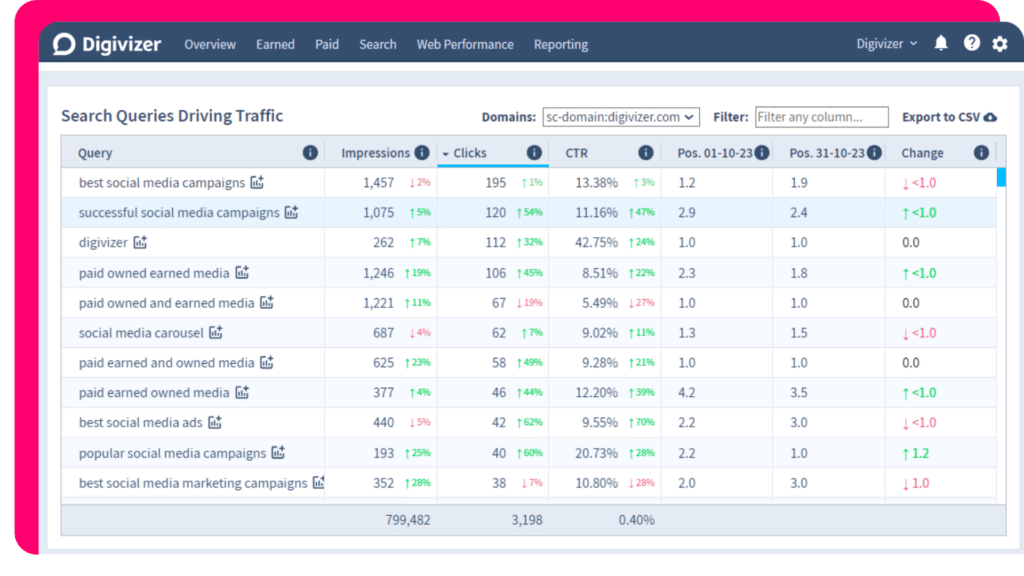Search engines shape the way nearly all users interact with online content. Accounting for 68% of all internet traffic, they determine users’ paths towards websites.
As such, understanding search engine optimization (SEO) and SEO keywords is crucial to putting your business’s website at the top of search engine rankings and above its competitors.
SEO keywords, also known as search queries, which are the main ideas and topics that define your website’s content, are one of the most important aspects to consider in order to master SEO.
Why Keywords Are Vital for SEO Success
With the seemingly infinite amount of information search engines comb through every day, connecting users to the best content requires search engines to know which words on a webpage best sum up the wider content. These are your website’s SEO keywords, the words your customers are typing into search engines in the hopes of finding your content.
Businesses are rewarded when the match between what someone searches for and what your website answers is as high a match as possible and supported by how many other people also think it is a great match.
In order for search engines to find your content and connect it with the right audience, your website must be built around the right keywords. Search engines display your content to searchers by determining your SEO keyword rank. The power of keywords shouldn’t be understated, for example, research from Backlinko found that using keywords in URLs increased click-through rates by 45%.
It’s clear that, if executed properly, utilizing keywords has a major impact on your website’s visibility and the amount of organic traffic directed towards it.
The Evolution of Keyword Usage in SEO
In order to make keywords work for your website, it’s worth understanding how best practice has shifted over time.
Search engines aim to deliver the best quality results for their users, while websites aim to generate traffic. As search engines became the dominant methods for discovering content, there quickly arose a portion of websites that aimed to take shortcuts, finding the secrets to achieving SEO keyword traffic without offering quality content in exchange.
At first, this looked like fitting as many keywords into a webpage as possible, regardless of the aesthetics and readability of the end product. Sites that were able to fit more keywords in were able to be ranked higher than quality websites.
Search engines changed and continue to tweak their algorithms, enabling them to prioritize quality of content and keywords over quantity, meaning relevance is the new king of SEO. Google now advises advertisers to be specific and sparing with keywords, avoiding too many adjectives. Keywords are still crucial, but the emphasis is now on using them naturally within high-quality content that addresses users’ needs and intent.
Search engines can also take into account the context of keywords or searches when determining SEO keyword rank, meaning that synonyms and related terms are more important than before. Similarly, the rise of voice search has changed the way users look for information, bringing a more conversational approach to queries.

Optimizing Your Content with Targeted Keywords
As search engine rankings have changed to become more user-centric, it is important to consider the intended audience when optimizing content. This is a crucial concern when researching and identifying the most relevant and high-impact keywords that speak to your business and its niche within the market.
Specifically, aiming for a combination of ‘short-tail’, or broad, and ‘long-tail’, or specific, keywords channels potential customers towards your content.
These keywords should be placed strategically throughout your content in a way that adds, not detracts, to the quality of the content. The primary focus should be to deliver valuable information first, while still featuring keywords in the title, headers and body of your site’s text.
The quality of the content itself plays a role in the success of the keywords, and as search engine algorithms continue to become more sophisticated, this will become increasingly the case.
Keyword Trends and Their Impact on SEO
While changes in technology have already had significant impacts on the way keywords are used for SEO, the ongoing impacts of new technologies and user behaviors means staying up to date is crucial.
SEO best practice now governs more than just the text on your website: multimedia elements such as images and videos can benefit a site’s SEO ranking. As with text, search engines favor relevance and quality, so keeping these content elements aligned with your keywords is crucial.
Regularly revisiting your selected keywords your content uses and keeping on top of SEO tracking is also important to ensure the content remains relevant. It is not enough to have identified the right keywords in the past. Customer preferences constantly change and adapt over time, and having access to search and keyword performance tracking over time is vital.

Unlock Your Search Performance
By being able to track SEO keyword and search query performance across multiple brands and measure results over time, Digivizer’s Search Query Tracking feature arms users with the insights to harness keywords and master SEO.
With Search Query Tracking you can:
- Identify the key search query driving traffic to your website.
- Add and track your chosen keywords that you wish to track your performance over time.
- See your impressions, click-throughs, click-through rate and position ranking over time.
You can also easily:
- Know what content your customers are searching for by seeing their actual natural language search and what volume is available to you.
- Measure how and what content is driving valuable traffic to your website.
To experience the power of Search Query Tracking feature for yourself, sign up for a free trial today. Note our Search Query Tracking is available on all paid plans.
All our plans include 30 days historical search, social and web performance data based on what accounts you connect, all downloaded within a minute.
Start mastering search and drive more valuable and converting web traffic to your website today.


